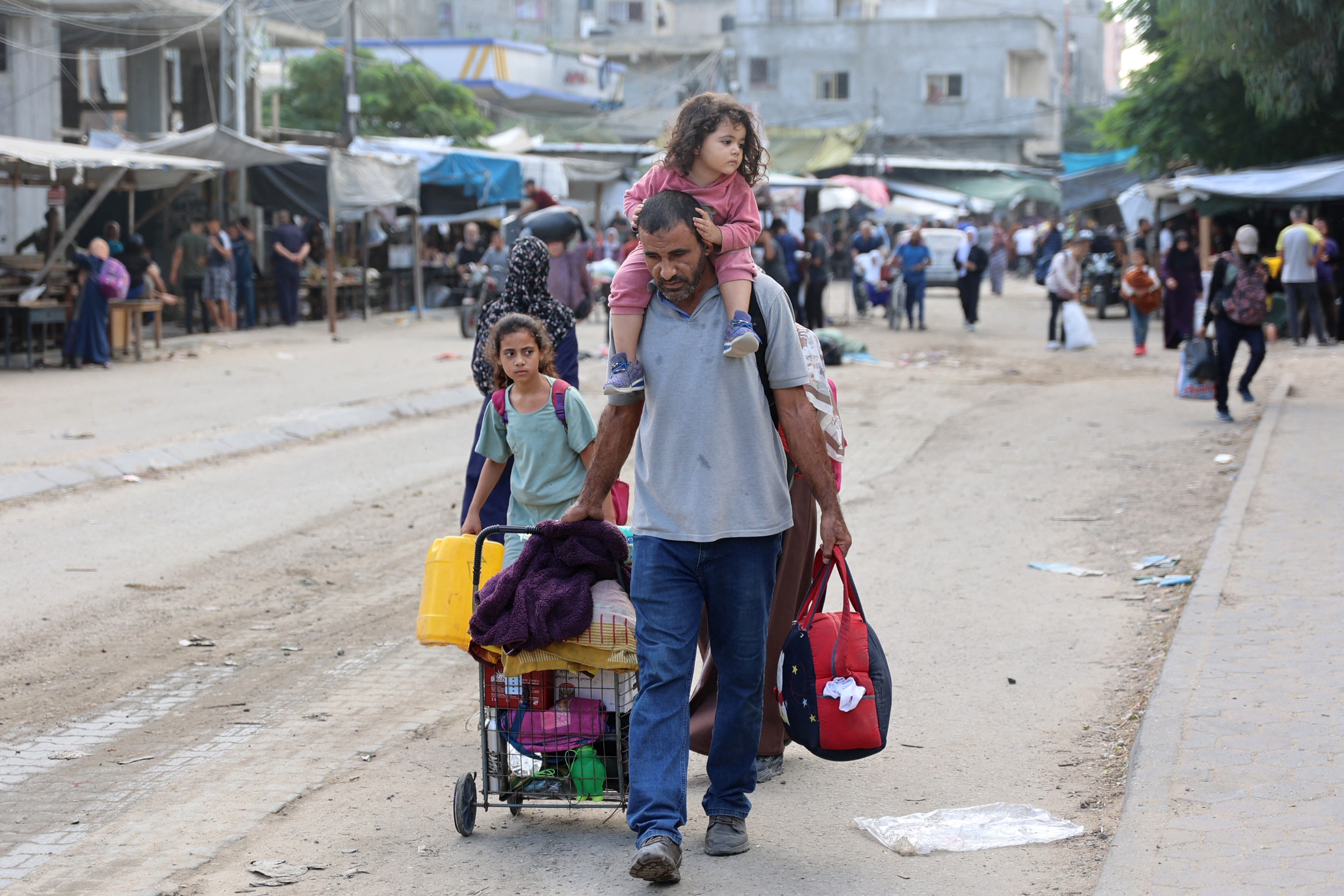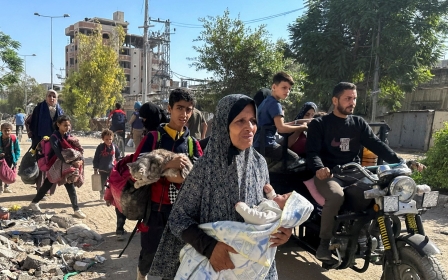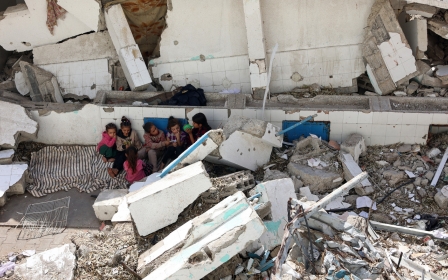Israeli army 'preventing' return of forcibly expelled Palestinians to north Gaza

Israeli media has reported the army has no intention of allowing the return of forcibly expelled Palestinians to northern Gaza, which is facing a campaign of ethnic cleansing according to rights groups.
A senior Israeli officer told journalists on Tuesday that nearly 55,000 Palestinians have been forced out from the Jabalia refugee camp since the offensive began on 5 October.
Before the latest assault, there were around 400,000 Palestinians in north Gaza and Gaza City, according to the UN.
The Israeli army has denied carrying out the "Generals' Plan", also known as the Eiland Plan, in north Gaza, which includes ethnically cleansing the area and killing any Palestinians who remain.
However, Haaretz reported that the army has been implementing a significant portion of it, expelling much of the north's population to other areas.
New MEE newsletter: Jerusalem Dispatch
Sign up to get the latest insights and analysis on Israel-Palestine, alongside Turkey Unpacked and other MEE newsletters
Another report by Channel 12 on Tuesday said the attack on Jabalia is different and more extensive in its expulsion of Palestinians.
The Israeli military is preparing to capture the area, it reported, and does not plan to allow for the return of residents for the time being.
In areas like Beit Lahia, Haaretz reports that the army has rendered the place unliveable, with artillery fired at night to prevent residents from returning home. The military has thus entered the stage of cleansing Gaza's north, according to Haaretz, as it seemingly readies to seize the area.
Cleansing the area of Palestinians would reportedly be a notable achievement for the Israeli army, allowing for more freedom in its operations, Channel 12 reported.
'Wiped off the map'
Israeli human rights groups and major international aid organisations have called on leaders and the international community to stop Israel's forced displacement in northern Gaza.
In Israel, rights groups including Gisha, B'Tselem, Physicians for Human Rights Israel and Yesh Din said there were "alarming signs" that the "General's Plan" was being implemented.
The plan was published in late September by the Forum of Commanders and Soldiers in the Reserves, an Israeli NGO which defines itself as a professional body with more than 1,500 army officers.
The central figure behind the plan is Giora Eiland, a retired major general reserve, who was head of the army's operations and planning divisions, and later headed the National Security Council.
At its simplest, this suggestion by a group of senior reservists involves ethnically cleansing the northern Gaza Strip of people and then besieging the region, including stopping the entry of humanitarian supplies, to starve out anyone left, including Palestinian fighters.
Major aid organisations warned that northern Gaza is being "wiped off the map", urging world leaders to stop the "atrocities" committed by Israeli forces.
"The Israeli forces’ assault on Gaza has escalated to a horrifying level of atrocity," said organisations such as Oxfam, Medical Aid for Palestinians, ActionAid, Islamic Relief, Christian Aid and other UK-based charities in October. "This is not an evacuation; this is forced displacement under gunfire."
The assault on northern Gaza has so far killed at least 1,300 Palestinians, according to local officials.
Overall, the Israeli war on Gaza has killed nearly 43,400 people and wounded 102,000 more since 7 October, the majority of them children and women, according to the Palestinian health ministry. Thousands more are missing, presumed dead under the rubble.
Middle East Eye delivers independent and unrivalled coverage and analysis of the Middle East, North Africa and beyond. To learn more about republishing this content and the associated fees, please fill out this form. More about MEE can be found here.





